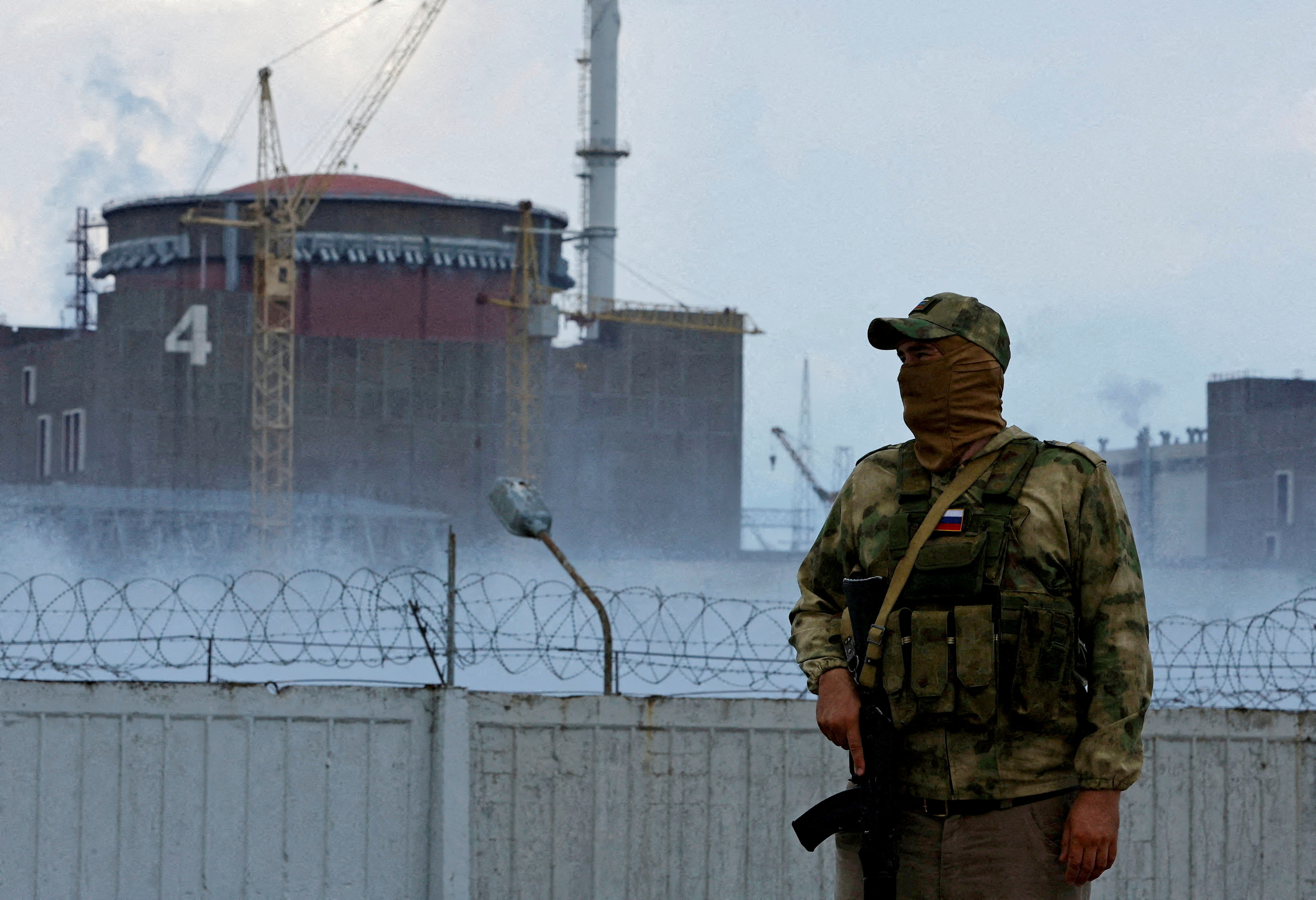
On Wednesday, Russian President Vladimir Putin directed his government to seize control of Ukraine’s Zaporizhzhia nuclear power plant, Europe’s largest, as the United Nations nuclear watchdog warned that the site’s power supply was “extremely fragile.”
However, the head of Ukraine’s state energy agency announced that he would take over the plant, which has become a source of international concern due to the possibility of a nuclear disaster following shelling in the area for which Moscow and Kyiv have both claimed responsibility.
The plant is located in Zaporizhzhia, a southern Ukrainian region that President Vladimir Putin formally incorporated into Russia on Wednesday
Russia seized the Zaporizhzhia nuclear power plant (ZNPP) in March, shortly after invading Ukraine, but Ukrainian workers have kept it running.
The plant is located in Zaporizhzhia, a southern Ukrainian region that President Vladimir Putin formally incorporated into Russia on Wednesday, a move that Kyiv has condemned as an illegal land grab.
“The Zaporizhzhia nuclear plant is now on the territory of the Russian Federation and, accordingly, should be operated under the supervision of our relevant agencies,” RIA news agency quoted Deputy Foreign Minister Sergei Vershinin as saying.
Putin issued a decree designating the ZNPP as “federal property”
Putin later issued a decree designating the ZNPP as “federal property.”
In a statement, Russia’s nuclear power operator Rosenergoatom said it would assess the damage and transfer all existing Ukrainian employees to a new Russian-owned organization.
“The new operating organization is designed to ensure the safe operation of the nuclear power plant and the professional activities of the existing plant personnel,” it said.
Ukrainian President Volodymyr Zelenskiy’s adviser, Mykhailo Podolyak, said Putin’s “attempted legal raid” required an immediate response. He called for sanctions against Rosatom, the state-owned nuclear power supplier, on Twitter.
He also demanded a halt to all nuclear facility construction with Rosatom and the rejection of any nuclear cooperation with Russia.
“We will continue to work under Ukrainian law”
The head of Ukraine’s state nuclear energy company announced his appointment as CEO of the ZNPP and urged employees not to sign any documents with its Russian occupiers.
“All further decisions regarding the operation of the station will be made directly at the central office of Energoatom,” Petro Kotin said in a video.
“We will continue to work under Ukrainian law, within the Ukrainian energy system, within Energoatom,” Kotin said.
His remarks came after Russian forces briefly detained the ZNPP’s Ukrainian director, Ihor Murashev, last weekend. Murashev was later released but would not return to his old job, according to the International Atomic Energy Agency (IAEA).
The IAEA’s chief, Rafael Grossi, is currently in Ukraine for additional consultations on “agreeing and implementing a nuclear safety and security protection zone around the ZNPP as soon as possible,” according to the United Nations agency.
The plant supplied roughly one-fifth of Ukraine’s electricity
Grossi reiterated his concerns about the plant’s power supply on Wednesday.
“The situation with regards to external power continues to be extremely precarious. We do have at the moment external power but it is, I would say fragile,” he told the Energy Intelligence Forum.
Grossi is also scheduled to visit Moscow this week, according to Russia’s state-owned TASS news agency, and he may also visit the ZNPP after visiting there last month with a team to inspect damage caused by shelling in the area.
Prior to Russia’s invasion, the plant supplied roughly one-fifth of Ukraine’s electricity and nearly half of the energy generated by the country’s nuclear power plants.
Russia annexed Zaporizhzhia and three other regions after holding so-called referendums, which Kyiv and Western governments condemned as illegal and coercive. Moscow does not have complete control over any of the four regions.
